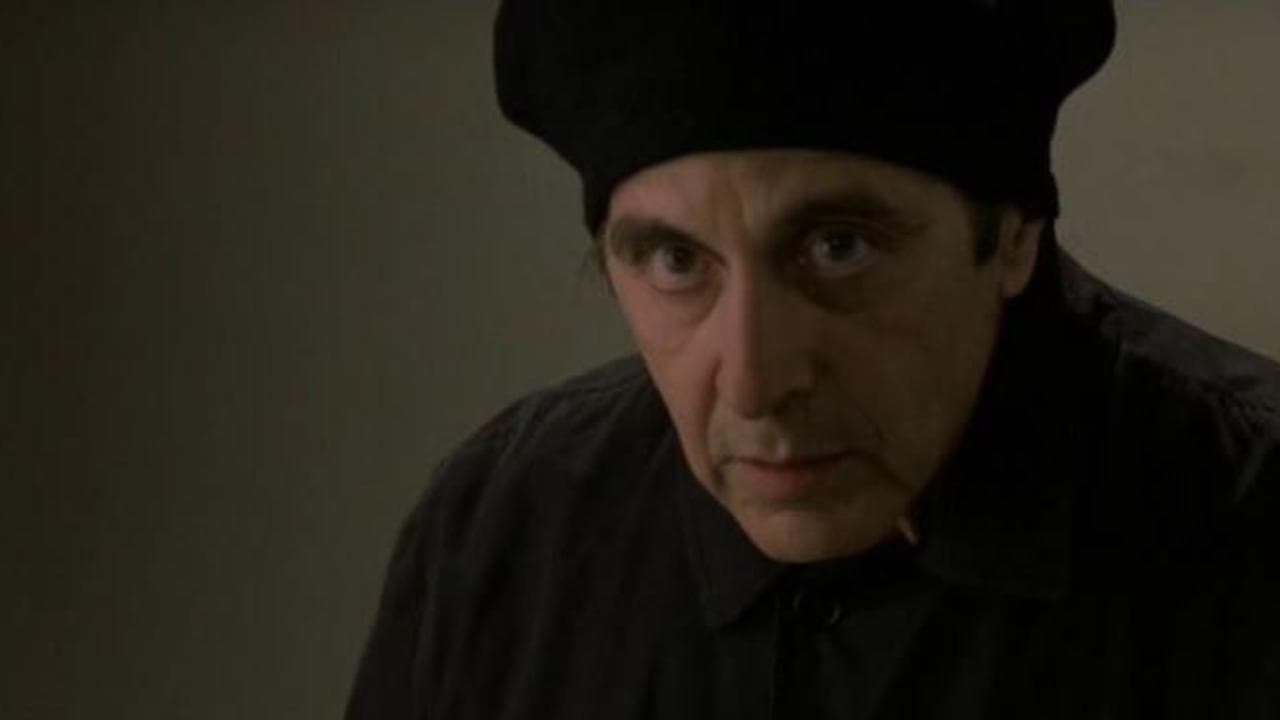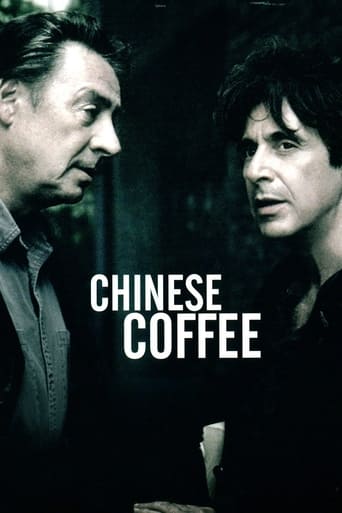

Well I just loved the Chinese Coffee for its brilliant acting and direction. It reminded me of the theater of the Absurd in a strange haunting way! With Chinese Coffee Mr. Pacino surpasses his own status of being a stellar performer & a superstar combined and cements his position as one of the greatest artists of all times. The tone of the movie is intimate and artistic at times a little dark. I loved the stream of Levine's consciousness which makes the audiences look into his past---his hopes & failures. Pacino is brilliant as a middle aged struggling writer who is haunted by his own past, his parents' and his own shortcomings and aspirations. Kudos to Mr. Pacino for providing us with such a brilliant artistic piece! He truly is a gem of an artist. Love him! God bless!
... View MoreWhen I see the movie so many feelings and ideas filled my mind. is one of great acting ever saw. but not only acting make the film fabulous, and script too. is about, life about art, about how long way must take to rise to know who you are. is not only about dream, i think is not about dreams at all i think is about the day when you wake up and see your life is somewhere behind you, and can't be reach it. is about one "me" with 2 face, so different in way the so compatibility! i think is about creations when you are full with so many things expected to be shared and somehow you can find the way to share. if was only about the common things used, like dreams, hopes love, friendship, maybe not give in to me that feelings but is much more, maybe is more after all about the felling to impotency when you have resorts. only think is i can talk about movie, about every word from this movie hours. every scene open so many possibility in way how can be receipted
... View MoreIt's been a long time since I've seen Al Pacino in a different role from his usual "cop/mobster/lawyer" fare. Take Francis from "Scarecrow", one of my favorite Pacino roles, add 25 years and a passion for literature, and you've got a struggling artist, another dreamer waiting for life to happen.Ideas on identity, art, time, love, sometimes with an absurdist bitter-sweet touch, are explored. As I watched, it reminded me of Orwell's "Keep the Aspidistra Flying" and Luigi Pirandello's "One, No one and One Hundred Thousand". The writing and acting are excellent. It's performances like this that cement Pacino's status as one of the world's greatest actors.
... View MoreThis is the only movie I've ever gone to see twice at a film festival. It played in Toronto at the 2000 film festival, and my friend and I talked about it for hours afterwards. It's an invigorating movie, based on the play by Ira Lewis, about two bohemian guys, approaching 50, adrift in the early 80's, yet stuck in the past.It's a "talkie" movie that could play on a double-bill with "My Dinner With Andre", a two-hander about a book Pacino has written and the first encounter with his friend, played by Jerry Orbach, since the Pacino character has lent it to him. But it's about so much more than that: it's about writing, dreaming, the creative process, relationships, loneliness, poverty, and finally, values. There isn't a moment that we're not involved with these two guys as they negotiate their relationship. The script crackles with life and wit, observation and nuance. Pacino first directed the great documentary "Looking For Richard", about how to approach staging a Shakespeare play. And here in "Chinese Coffee" he proves once again that he has a natural ability to tell a story in a completely fresh and interesting way, free of the constraints and pettiness of a routine plot.If you're an actor and you haven't seen this movie, than shame on you, this one will have you going for days. And you'll return to it, too. It's a buried treasure in a great career for Pacino. I can't recommend it any higher.
... View More